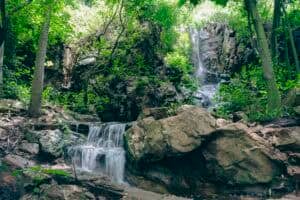The proceedings involving Shell's seismic survey which started on Wednesday were overseen by Acting Judge Avinash Govindjee.

Four applicants represented by environmental law firm Cullinan & Associates successfully brought forward an urgent interdict regarding Royal Dutch Shell’s scheduled 3D seismic survey.
Papers filed at the Grahamstown (Makanda) High Court on 29 November against Shell and Minister of the Department of Mineral Resources and Energy Gwede Mantashe gave respondents 24 hours to respond to the applicants’ founding affidavit.
Nevertheless, the proceedings, overseen by Acting Judge Avinash Govindjee, were marked urgent and went ahead.
ALSO READ: EXPLAINER: Shell’s seismic tests in the Wild Coast
The applicants – Natural Justice, Greenpeace Africa, Border Deep Sea Angling Association, and Kei Mouth Ski Boat Club – were represented by Advocate Willie Duminy.
Duminy argued that correspondence regarding the survey was only received in October, a point later disputed by Advocate Albert Beyleveld representing minister Mantashe.
Beyleveld said there had to have been a month where “nothing was done”. He said the applicants were notified of a compliance audit, and could easily have brought the urgent interdict forward.
Applicants were seeking to halt Shell’s survey from taking place in December, as per the Environmental Management Programme (EMPR).
There is a worry, advocate Duminy argued, as Humpback whales returning from migration could be impacted by the seismic survey.
Although he said more studies needed to be conducted regarding the effects of seismic blasts on animals, fauna, flora, humans and coastal communities, harm was still admitted in mitigation plans.
The applicants argue it is more a question of the degree of harm than if there will be harm, which was said to be irreparable.
Beyleveld said there will always be an impact, and that the question was more if the impact was “legitimate” or not.
ALSO READ: Shell seismic survey prompts boycotts and protests
It was also argued by the applicants that there was no evidence of consultation, and that only one interested party out of seven were given notice of the survey.
This point was not disputed by Shell’s legal representation, who said Shell would “have liked” to provide more detail, and which would have been made available in due course, if there was time.
However, Shell did argue that millions of dollars had already been spent to commence the seismic survey from Wednesday.
Advocate Adrian Friedman said seismic surveys were routinely conducted in South Africa and around the world, with “no real evidence of any negative impact”.
He said surveys had been conducted for 50 years, and 15 years of peer-reviewed research demonstrated no harm was inflicted during seismic blasting.
Friedman argued the applicants’ case rested on “the assumption that an expert needs to determine damage”.
Friedman said environmental law meant a balance between nature and commercial interest had to be struck, and that should the interdict delay the survey, it was likely Shell would have to cease its survey.
Govindjee said judgement in the matter would be handed down virtually on Friday at 9am.
Support Local Journalism
Add The Citizen as a Preferred Source on Google and follow us on Google News to see more of our trusted reporting in Google News and Top Stories.






